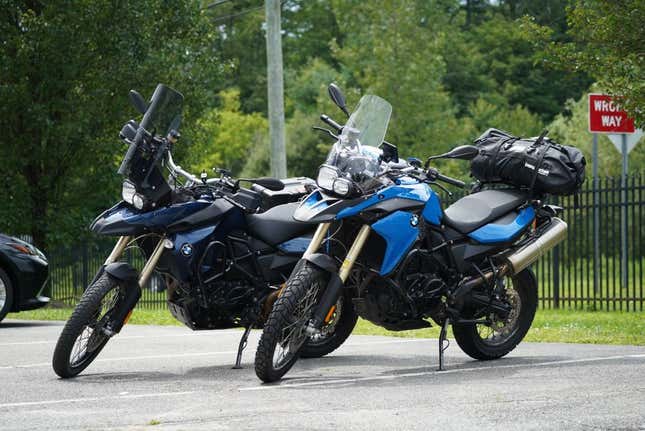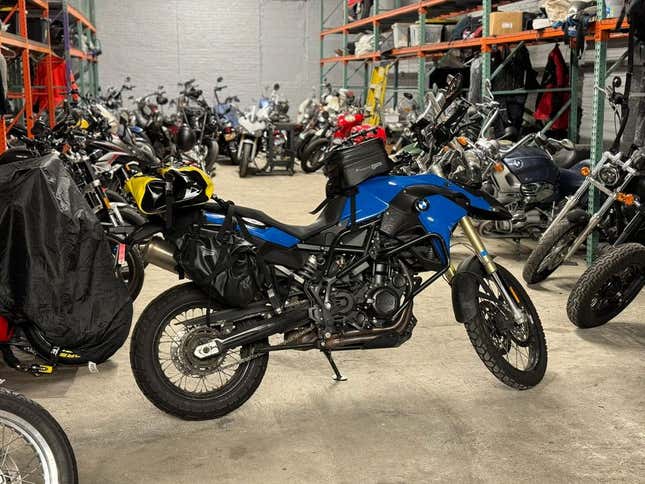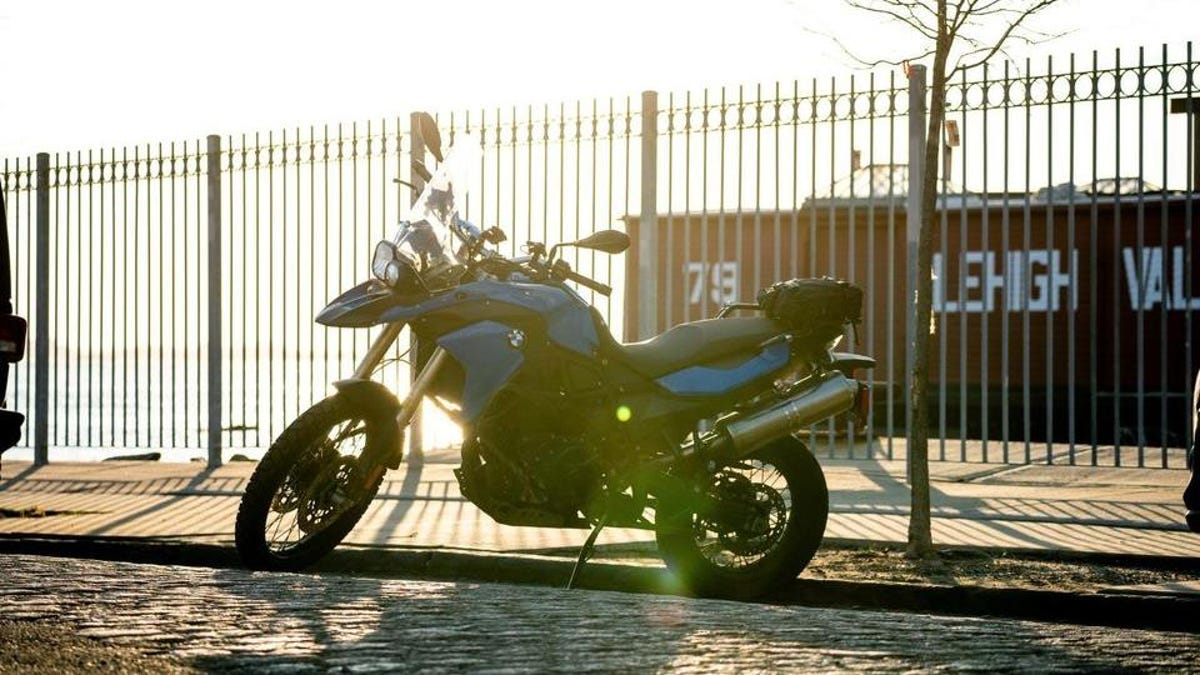I put my beloved BMW F800GS up for sale last week. I bought it nearly a year and a half ago for the same reason anyone buys an adventure bike: That dream of one day getting out there, away from everything, just you and your steel horse against the lush, green world.
After buying the GS — my second adventure bike from BMW — I joined ADV forums, pored over trail maps for multi-day dirt rides, even started working out the specifics of motorcycle camping. I’ve worked my way into the position of Jalopnik’s resident ADV girlie. But I never did those multi-day rides, I never got around to motocamping. Even if I had, I bought the wrong bike for them.

I know, I know, ADVs are supposed to be perfect. They’re so hot right now, with everyone from Yamaha and Royal Enfield to Triumph and Ducati looking to get a piece of the pie first baked by BMW in 1980s. They can do anything, go anywhere, from the race track to the Erzbergrodeo. If you need one bike for all occasions, an ADV is the only way to go.
I call bullshit.
An ADV will do nearly any task, on this point I won’t argue. You can track them, tour on them, take them to the highest peaks and lowest valleys. The problem is that, having done a bit of everything on this GS, I’ve realized there’s no situation in which it’s the bike I actually want to be on for whatever I’m doing.
Most of my riding happens within Brooklyn, where I’m traveling stoplight to stoplight at what my GS says is an average of 10 whole miles per hour. At those speeds, a 500-pound bike that sits its weight over ten and a half inches off the ground is a tippy, clumsy proposition — I’d rather be on an upright naked bike. Or a supermoto, if I want to go directly to curb-hopping asshole prison.
On track, the GS is still big and heavy, but track riding adds more grievances to the list. The fake tank’s cutouts aren’t great for hooking a knee into while leaning, the engine doesn’t make competitive power, the tires are only rated to 99 miles an hour when you’re trying to do 105 down the front straight in the rain — I’d rather be on a sportbike, sure, but even something with wider bars on a sportbike frame would be a step in the right direction.
Yet, when you’re offroad, adventure bikes are still big and heavy. Dirt bikes generally have a single cylinder, and this twin-cylinder tourer with all its fuel capacity weighs nearly double what even a big dirt bike does. That’s more weight to hustle through tight trails, more weight to pick up when you inevitably drop the bike — I’d rather be on a true dual sport, with a single cylinder and a license plate.

The closest the GS gets to feeling like it’s in its element is the highway, where the oft-omitted back half of the adventure touring name makes itself known. I can load the bike up with luggage, hit the highway, and let that 360-degree parallel twin lope along for hours. The windscreen leaves a bit of comfort to be desired, sure, especially in my highly-vented adventure helmet, but to improve on that you’d need something like a Gold Wing or a dresser. Which you can get, and for less than this BMW cost me.
Mash the categories together, and you get other cross-market bikes that already exist. A city/track rider would be better served by a naked, with a sportbike frame and more upright bars. A track/touring rider needs a sport tourer, as does a city rider — though more for the agility between stoplights there than the raw power. A city/offroad rider needs a dual sport, maybe one of the approximately 6,000 KLR650s on the streets of New York at any given time, while a track/offroad rider needs something like a 701 or 690 Enduro with a spare set of supermoto wheels to strap to the back.
The only place an ADV makes sense — a truly purpose-built ADV, something bigger than a Versys 650 — is for a rider who primarily tours but still wants some offroad capability. That’s perfect for Ewan and Charley, sure, but how many people can really say that’s their genuine use case? How many people commute 100 miles each way every day, hit the dirt on the weekends, and don’t have the garage space for a second bike?
But, of course, we don’t buy bikes based on what we need. To reduce a bike to a use case is to ignore the entire emotional side of motorcycle buying, and that’s where adventure bikes truly shine. You don’t buy a GS because you spend your weekdays chewing through Iron Butts and your weekends on the Trans-America Trail — you buy a GS because you could.
An adventure bike, in the mind of its rider, is a ticket to anywhere at any time for any reason. The theoretical ability to do anything and everything — even if you know it won’t do it perfectly — makes all the compromises worth it to some people. Just, not to me.
Yet, I’m glad I bought this GS. A couple paragraphs ago I specified that my working definition of an ADV here is something bigger than a Versys 650, and that’s because I stand by what I said about adventure bikes last year. An ADV’s ability to do a little bit of everything lets you see dip your toes into plenty of ponds, it helps you figure out what you do and don’t like on two wheels. My F800GS, with all its specialization, still managed to teach me something I don’t like: This pair of wheels.
Someday, in my future, there’s a retro-styled naked bike waiting for me. An XSR, a Z900RS, something smaller and lighter and nimbler than a lumbering ADV. I’ll remember my GS fondly, but the goal now is to remember it — not to continue experiencing it. So, after a thousand words of me saying why you shouldn’t, anyone wanna buy an adventure bike?


